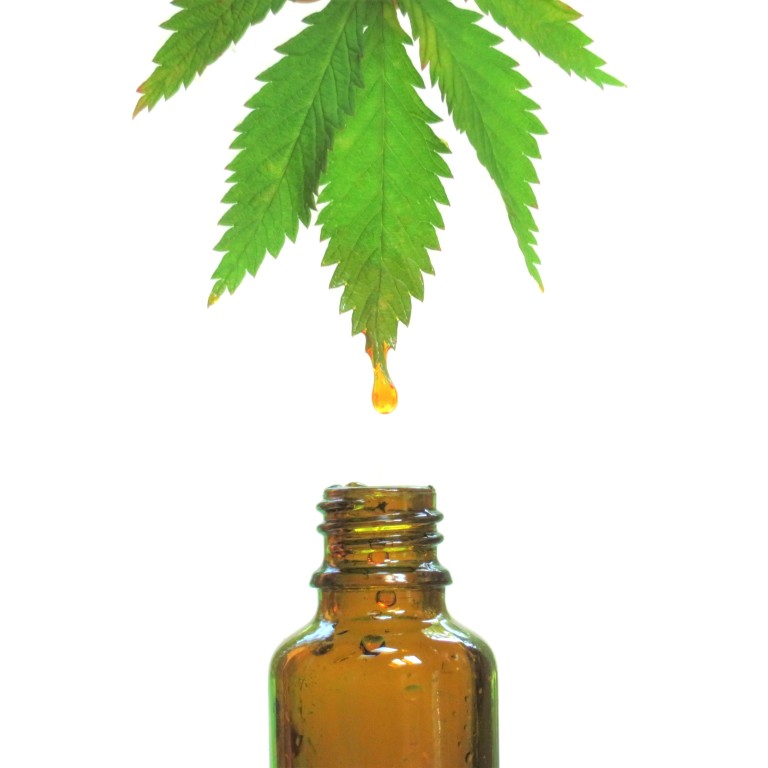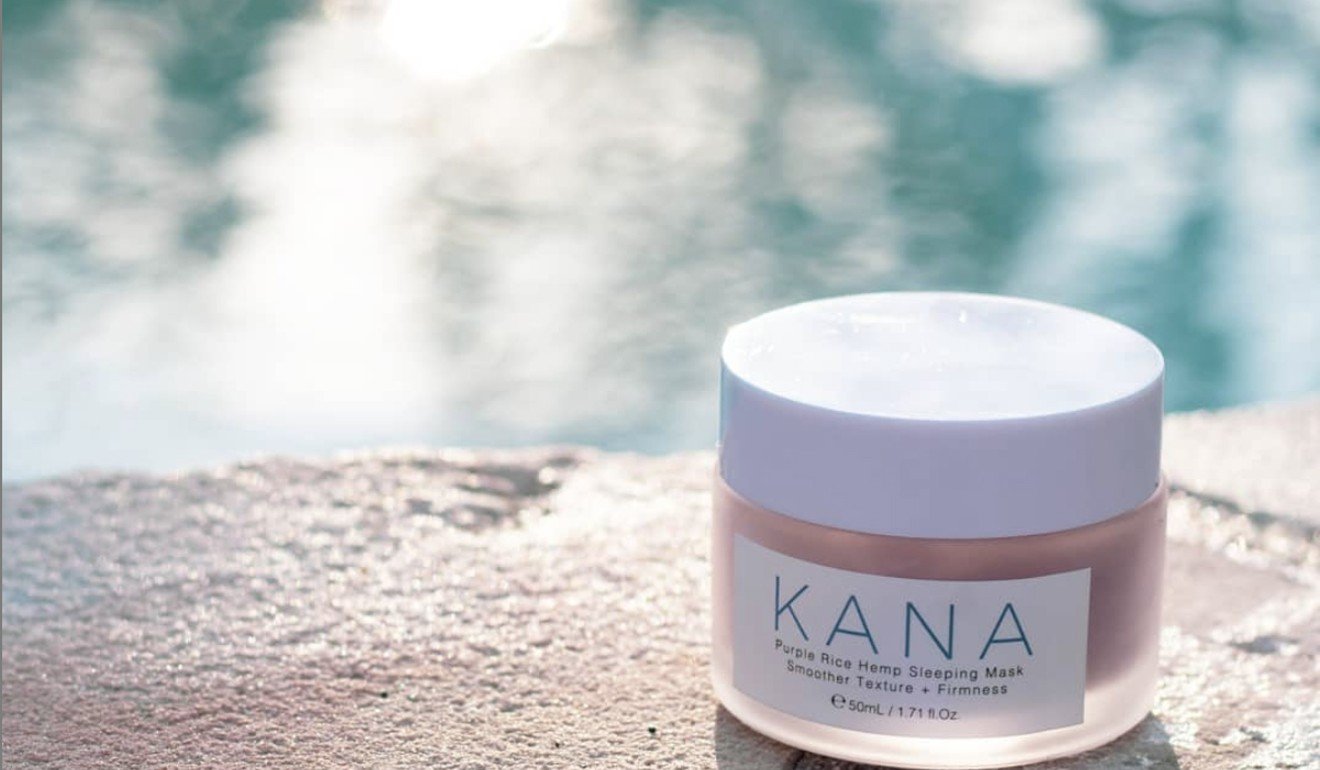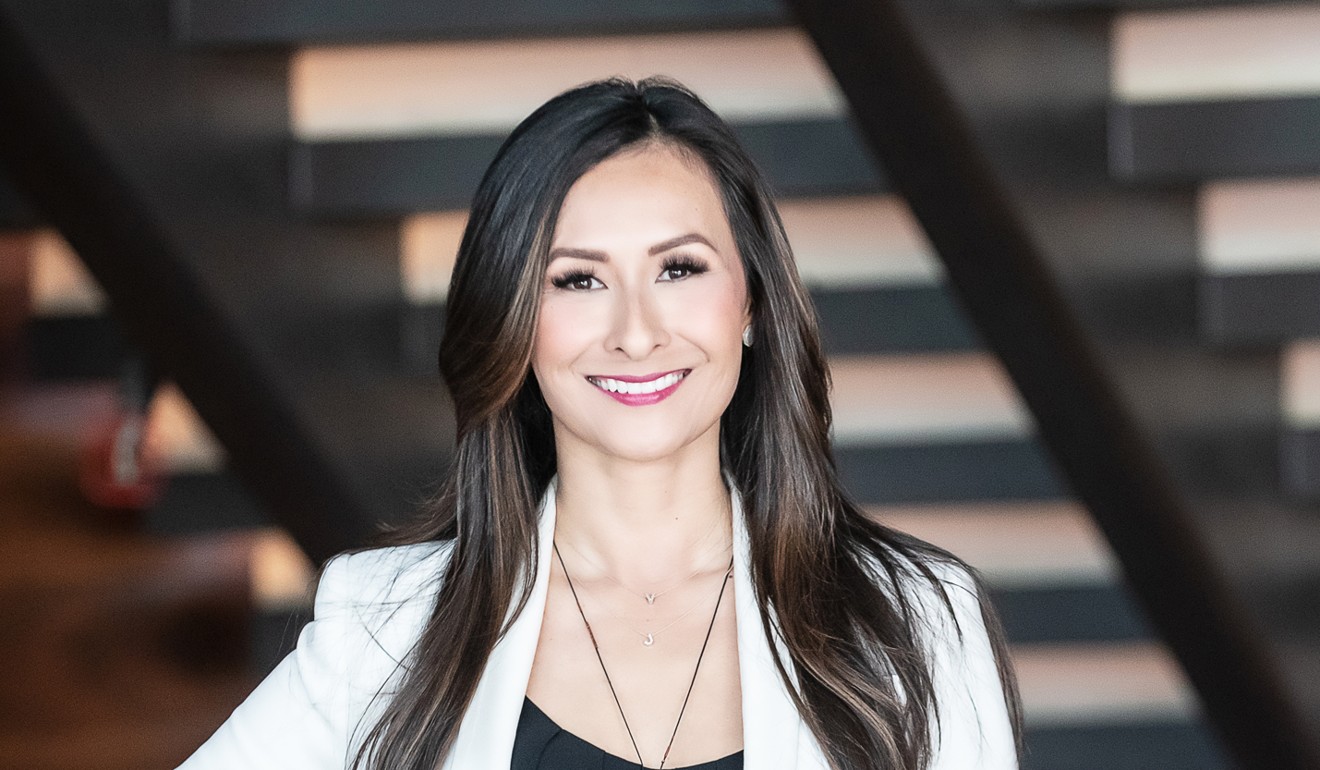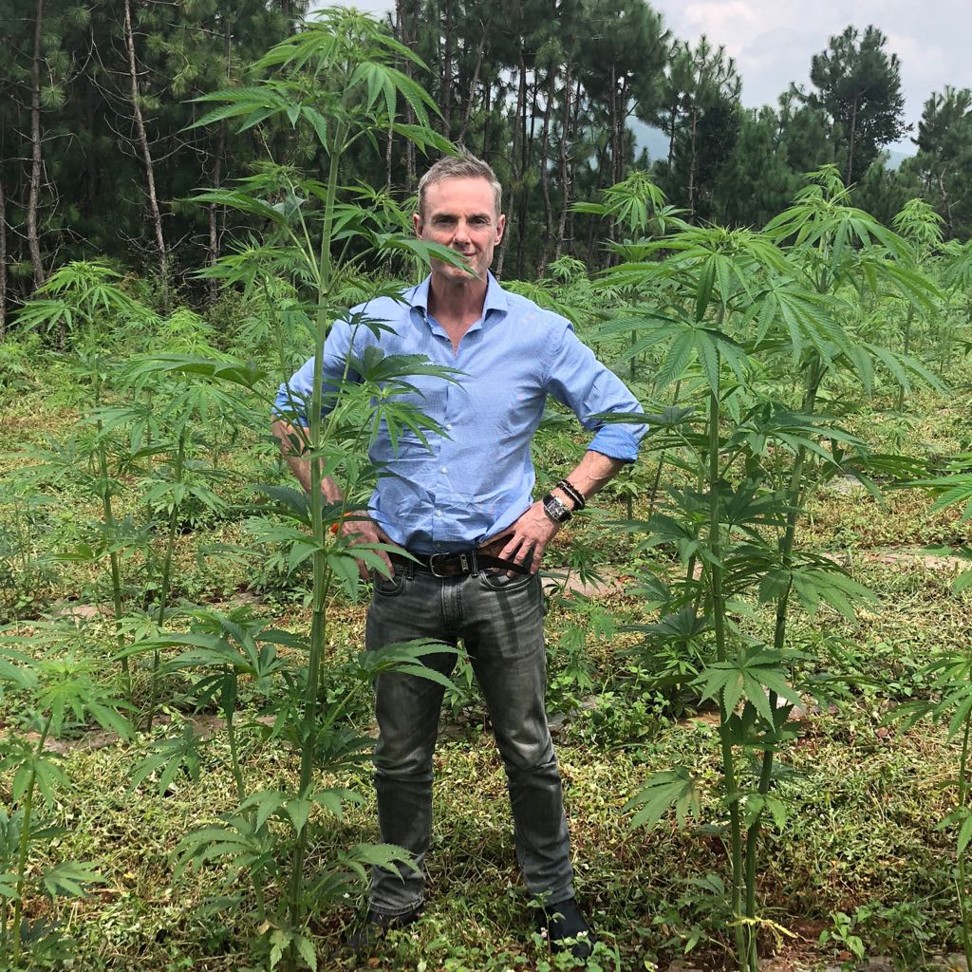
Smearing cannabis on your face: the latest Asian beauty craze
- The market for beauty products made from cannabidiol (CBD), a non-psychoactive compound found in cannabis plants, is projected to be worth US$25 billion by 2029
- With Japan and Korea at the forefront of global beauty standards, experts say it is only a matter of time before they – and China – embrace the CBD trend
Green gold rush: Thailand, Malaysia race to legalise medical marijuana
Offerings such as Estee Lauder’s Origins “Hello, Calm” hemp mask, Unilever-owned Murad’s hemp face serum and L’Oreal-owned skincare line Kiehl’s hemp-based face oil suggest CBD beauty products have already gone mainstream.
Throughout the United States and Canada, from chemists to multi-brand skincare retailers like Sephora and upscale department stores including Nordstrom, many mainstream retailers now carry a range of CBD-infused beauty and wellness products, and this will only continue to grow. In the US alone, more than 35,000 retailers have expressed interest in carrying CBD products, with 10 per cent of these shops already carrying such products, according to Hong Kong-based investment firm Regent Pacific. This trend comes on the back of the rapid expansion of the legal marijuana industry, thanks largely to the relaxation of laws in the US, Canada, Germany, Italy and Britain, with other countries set to follow suit.

This “green gold rush” has proved so lucrative that while some estimates put the industry’s current value at US$150 million, investment bank Barclays reports that it is set to rocket to US$272 billion over the next decade. The legal market for edible and smokable marijuana is expected to be worth US$66.3 billion by 2025, according to consulting firm Grand View Research.
The [beauty and] wellness sector will be the main driver for [the CBD market’s] growth
These guys deal with cannabis in Singapore – and don’t feel paranoid
China is currently the world’s largest producer of industrial hemp, which encompasses varieties of cannabis containing less than 0.3 per cent of the psychoactive compound tetrahydrocannabinol, also known as THC – the global standard for most legal CBD products.
By 2024, the CBD market in China alone would be worth about US$15 billion, said Jamie Gibson, chief executive of Hong Kong-based investment company Regent Pacific Group, which recently signed an agreement to acquire CBD-products e-commerce platform Yooya for US$15 million. They hope to close the acquisition by the third quarter of this year. “There’s no breakdown, but I would say that the [beauty and] wellness sector will be the main driver for this growth,” he said.
Gibson said the plan was for Yooya to become an online retailer for high-end CBD beauty products, including topical creams and skincare lines for domestic consumers in China, as well as overseas shoppers.
CHINA’S HISTORY WITH CANNABIS
Cannabis has been illegal in China since 1985, but the country was for thousands of years among the world’s largest producers – the plant was also used as a herbal supplement in traditional medicine.
According to a report published by cannabis consulting firm Prohibition Partners this year, China’s hemp market was worth US$1.1 billion in 2017, and is projected to grow to US$1.5 billion by next year.
CEO Glenn Davies expects to garner about 20 tonnes of CBD oil this year from the 1,000 hectares of hemp. According to his estimates, 1kg of CBD is worth from US$4,000 to US$8,000, depending on the quality, valuing his yield at between US$80 million and US$160 million.
Ganja gap: after marijuana legalisation, Asian-Canadians tread a cultural divide over getting high
“We’re building one of the largest CBD production, extraction and processing facilities in the Southern Hemisphere,” Davies said. “A lot of clients and potential investors have been asking us for a long time – where can we get supplies?”
Global demand for CBD outstripped supply, Davies added, indicating that the market potential for the compound was huge.
Brian Sheng, a general partner at cannabis investment firm The Arcview Group, said Asia’s medical cannabis market was projected to be worth US$5.8 billion by 2024, and the CBD market could be worth US$10 billion – though he thought it could be even larger than that.

“The biggest swing here would be if China allowed consumption of CBD products, which I think is very possible and will occur faster than people think,” he said.
CBD products are technically legal in China, so long as they have gained government approval. They are fully legal in Japan and were recently made legal in South Korea and Thailand for medical use, alongside psychoactive marijuana.
THE NEW K-BEAUTY?
In the US, some Asian-American entrepreneurs have already embraced this potentially lucrative trend. Since 2015, Janice Buu, a Los Angeles-based American of Korean-Chinese descent, has been busy developing Kana Skincare – what she calls the first vegan, cruelty-free CBD K-beauty brand produced in the country.
“I was always into K-beauty. My mom would make sleeping masks out of food at home using milk, honey and so on,” Buu says. “In 2014, my dad had a heart attack in Taiwan – I smuggled CBD over in my make-up bag and put it in his food.”
Thailand’s election stalemate: in Thaksin Shinawatra versus the junta, a pro-marijuana tycoon is kingmaker
Buu said the supplement accelerated her father’s healing and reduced his pain significantly. Convinced of its regenerative properties, she began working with Korean chemists who flew from South Korea to Los Angeles to help her develop CBD-based skincare formulas.
“When I first asked them to work with me, one chemist said to me in English: ‘No, [if] I make CBD, I go to jail’,” Buu said. “I was like, ‘No – how about you make it here in LA?’ I think this really flagged their interest as scientists because they wanted to see why in America we could work with such an amazing ingredient, and yet in Asia they still couldn’t.”

Buu declined to disclose Kana Skincare’s profits but said the demand for her product had rocketed over the past year, with orders produced for the US and beyond. “In the past, we used to go into production every season, but now we are in production every two weeks.”
Amanda Huh, a Korean-American beauty enthusiast living in Los Angeles, said she could confirm the efficacy of CBD products – from CBD-infused mascara to nail polish as well as traditional sheet masks.
“The thing is because it’s a trend, people want to know how effective it really is. That’s why I test them all,” she said. “It’s been used for thousands of years and it comes from mother nature, it’s always great to go with natural products that are good for you.”
Will Thailand’s legal medical marijuana seed a new black market?
Jenelle Kim is a Korean-American traditional Chinese medicine practitioner and founder of JBK Wellness Labs, which specialises in CBD beauty products. She also runs her own CBD K-beauty line, Cannabis Beauty Defined Skincare, in the US.
According to Kim, the benefits of CBD in skincare are numerous. She said it was filled with antioxidants and high levels of vitamins A and E, fatty acids that enhanced the vitality of skin, and was also soothing and calming for sensitive skin.
“Fifteen years ago, when the CBD market started to emerge, I realised people needed this in the West,” she said. “I had definitely heard that Asia will become a big market for CBD … It started in the US, and now it’s coming [back] to Asia.” ■


